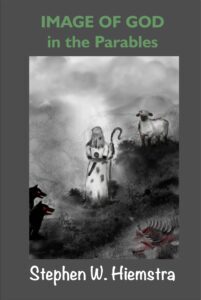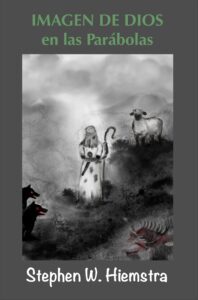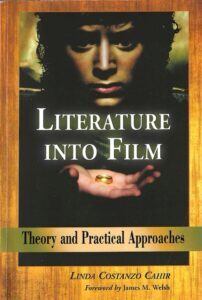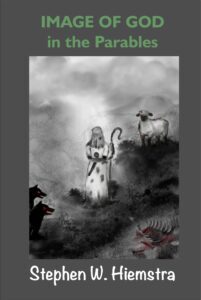Stephen W. Hiemstra's Blog, page 25
January 13, 2025
Presence: Monday Monologues (podcast), January 13, 2025

By Stephen W. Hiemstra
This morning I will share a prayer and reflect on the Ministry of Presence. After listening, please click here to take a brief listener survey (10 questions).
To listen, click on this link.
Hear the words; Walk the steps; Experience the joy!
Presence: Monday Monologues (podcast), January 13, 2025
Also see:
The Face of God in the Parables
The Who Question
Preface to a Life in Tension
Other ways to engage online:
Author site: http://www.StephenWHiemstra.net
Publisher site: http://www.T2Pneuma.com
Newsletter at: https://bit.ly/Adv_2024, Signup
The post Presence: Monday Monologues (podcast), January 13, 2025 appeared first on T2Pneuma.net.
January 12, 2025
Prayer for Ministry of Presence

By Stephen W. Hiemstra
Loving Father,
All glory and honor, power and dominion, truth and justice are yours, because you first loved us and showed us what love looks like when it is most inconvenient.
Forgive us for loving the wrong things and returning love only when it is convenient, like the social-climber who only loves friends that can do them a favor.
Thank you for the sacrificial love of Christ, who loved us enough to die for us even though we were unlovely, broken, and selfish, like the teenager that only wanted his father’s money.
In the power of your Holy Spirit, turn our selfish hearts to you and the things that you love. May we offer a ministry of presence to those in need and turn to you in our own pain.
In Jesus’ precious name and for your glory, Amen.
Prayer for Ministry of Presence
Also see:
The Face of God in the Parables
The Who Question
Preface to a Life in Tension
Other ways to engage online:
Author site: http://www.StephenWHiemstra.net
Publisher site: http://www.T2Pneuma.com
Newsletter at: https://bit.ly/Adv_2024, Signup
The post Prayer for Ministry of Presence appeared first on T2Pneuma.net.
Oración de Ministerio de Presencia

Por Stephen W. Hiemstra
Padre Amoroso,
Toda la gloria y el honor, el poder y el dominio, la verdad y la justicia son tuyos, porque tú nos amaste primero y nos mostraste cómo es el amor cuando es más inconveniente.
Perdónanos por amar las cosas equivocadas y devolver el amor sólo cuando es conveniente, como el escalador social que sólo ama a los amigos que pueden hacerles un favor.
Gracias por el amor sacrificial de Cristo, quien nos amó lo suficiente como para morir por nosotros a pesar de que éramos desagradables, destrozados y egoístas, como el adolescente que solo quería el dinero de su padre.
En el poder de tu Espíritu Santo, vuelve nuestros corazones egoístas hacia ti y las cosas que amas.
Que podamos ofrecer un ministerio de presencia a los necesitados y acudir a ti en nuestro propio dolor.
En el precioso nombre de Jesús y para tu gloria, Amén.
Oración de Ministerio de Presencia
Also see:
El Rostro de Dios en las Parábolas
Prefacio de La Guía Cristiana a la Espiritualidad
Prefacio de la Vida en Tensión
The Who Question
Other ways to engage online:
Author site: http://www.StephenWHiemstra.net
Publisher site: http://www.T2Pneuma.com
Newsletter at: https://bit.ly/Adv_2024, Signup
The post Oración de Ministerio de Presencia appeared first on T2Pneuma.net.
January 10, 2025
The Friend at Midnight

And he arose and came to his father.
But while he was still a long way off,
his father saw him and felt compassion,
and ran and embraced him and kissed him.
(Luke 15:20)
By Stephen W. Hiemstra
One attribute of God is revealed most directly in the Parable of the Two Brothers: multiplication. When the younger son took steps to confess his sin to this father, the father took many steps to forgive him and to express his love. This overwhelming generosity appears throughout scripture, but it especially seen in the Gospel of John in the wine produced at the Wedding at Cana (John 2:6-10), the bread multiplied in the feeding of the five thousand (John 6:5-14), and the disciple’s catch of fish in Galilee (John 21:4-13). God is not stingy with his love.
Seeker Love
A contemporary example of God’s super-generous love arises in the context of faith denial. In Jesus’ Parable of the Two Brothers, at first neither brother loves his father. The younger brother hates his father so much he demands his inheritance while his father is still alive. The older brother practices a more insidious form of hatred: He pretends to love his father while secretly hating him, which leaves no door open to reconciliation. When the younger brother returns to his father, he opens the door to reconciliation out of his own need and shame, but only the tiniest bit—this is still not love. At best, it is a test of his father’s love.
We see a similar test of God’s love in Pascal’s Wager. Blaise Pascal (1623-1662), a French mathematician, used probability theory to argue that the agnostic argument is logically false in that faith is a fair bet. If God exists and you believe, then you win heaven, but if God does not exist, you loose nothing. In other words, faith in God has a positive reward provided the probability of God existing is a positive, non-zero number. Betting that God exists is accordingly offers better odds than organized gambling, where the house normally earns a substantial profit, suggesting that the odds in betting are negative—not a fair bet.
Pascal’s Wager does not engender faith, but it offers an opportunity to take faith seriously, out of pecuniary benefit—winning a bet. If faith is a fair bet, then the person considering Pascal’s Wager has to wonder why. Taking the next step—placing the bet—is a try-before-you-buy or fake-it-until-you-make-it kind of faith commitment. If a world where faith in God is treated as philosophical nonsense and dismissed out of hand, this step defines one as a seeker.
Do you think that our generous God, who is known for his overwhelming love, would ignore such a seeker? On the contrary, the Parable of the Two Brothers suggests that God will run to meet us.
Parable of the Friend at Midnight
The Parable of the Two Brothers is not Jesus’ only parable of extraordinary love. Consider:
And he said to them, Which of you who has a friend will go to him at midnight and say to him, Friend, lend me three loaves, for a friend of mine has arrived on a journey, and I have nothing to set before him; and he will answer from within, Do not bother me; the door is now shut, and my children are with me in bed. I cannot get up and give you anything? I tell you, though he will not get up and give him anything because he is his friend, yet because of his impudence he will rise and give him whatever he needs. (Luke 11:5-8)
What is love? Love is being willing to help a friend only because he asked, no matter how inconvenient. The word for imprudence is also translated as persistence (NAS), shameless audacity (TNIV), and importunity (KJV).
Jesus uses this parable to introduce one his most famous statements: “And I tell you, ask, and it will be given to you; seek, and you will find; knock, and it will be opened to you. For everyone who asks receives, and the one who seeks finds, and to the one who knocks it will be opened.” (Luke 11:5-10) Love means that with God one always has access. One of the hardest ministries to appreciate and understood is the ministry of presence. With God, we are never alone.
The ministry of presence is a gift we can then extend to others.
The Friend at Midnight
Also see:
The Face of God in the Parables
The Who Question
Preface to a Life in Tension
Other ways to engage online:
Author site: http://www.StephenWHiemstra.net
Publisher site: http://www.T2Pneuma.com
Newsletter at: https://bit.ly/Adv_2024, Signup
The post The Friend at Midnight appeared first on T2Pneuma.net.
Amigo a Medianoche

Levantándose, fue a su padre. Cuando todavía estaba lejos,
su padre lo vio y sintió compasión por él, y corrió,
se echó sobre su cuello y lo besó.
(Lucas 15:20)
Por Stephen W. Hiemstra
Un attribute De Dios revelado en la Parábola de los Dos Hermanos es la multiplicación. Cuando el hijo menor tomó un paso para confesar su pecado a este padre, el padre tomó muchos pasos para perdonarlo y expresar su amor.
No es una transación quid-pro-quo. Esta generosidad abrumadora aparece a lo largo de las escrituras. Se ve especialmente en el Evangelio de Juan en la cantidad de vino producida en las bodas de Caná (Juan 2:6–10), en el pan multiplicado en la alimentación de los cinco mil (Juan 6:5–14), y en la pesca de los discípulos en Galilea (Juan 21:4–13). Dios no tacaño con su amor.
Amor de los Buscas
Un ejemplo contemporáneo del amor supergeneroso de Dios surge en el contexto de la negación de la fe. En la parábola de los dos hermanos de Jesús, al principio ninguno de los hermanos ama a su padre. El hermano menor odia tanto a su padre que exige su herencia mientras su padre aún esté vivo. El hermano mayor practica una forma de odio más insidiosa, pasivo-agresiva: finge amar a su padre mientras lo odia en secreto, lo que no deja ninguna puerta abierta a la reconciliación. Cuando el hermano menor regresa con su padre, abre la puerta a la reconciliación por su propia necesidad y vergüenza, pero sólo un poquito—Esto todavía no es amor. En el mejor de los casos, es una prueba del amor de su padre.
Vemos una prueba similar del amor de Dios en la apuesta de Pascal. Blaise Pascal (1623-1662), un matemático francés, utilizó la teoría de la probabilidad para argumentar que el argumento agnóstico es lógicamente falso porque la fe es una apuesta justa en la que las probabilidades favorecen la apuesta. Si Dios existe y crees, entonces ganas el cielo, pero si Dios no existe, no pierdes nada. En otras palabras, la fe en Dios tiene una recompensa positiva siempre que la probabilidad de que Dios exista sea un número positivo distinto de cero. Con fe en Dios, todos somos ganadores.
Apostar a que Dios existe ofrece mejores probabilidades que los juegos de azar organizados, donde las probabilidades favorecen a la casa. Las ganancias sustanciales obtenidas por las casas de juego y las loterías estatales indican una apuesta tonta, no una apuesta justa, que está diseñada para aprovecharse de la pobreza y la ignorancia de los adictos al juego, que están impacientes con la vida. Los economistas ven las loterías como un impuesto regresivo dirigido a los pobres, quienes a menudo creen que no tienen nada que perder. Es como el jefe sin escrúpulos que invita a los trabajadores de la construcción a tomar una cerveza y jugar al póquer los días de pago, sabiendo que cuando todos recuperen la sobriedad, él se quedará con sus cheques de pago. A diferencia de todo eso, con fe en Dios, todos salen ganando.
La apuesta de Pascal no engendra fe, pero lleva a tomarla en serio fuera del beneficio pecuniario—la posibilidad de ganar una apuesta. Si la fe es una apuesta justa, entonces la persona que considera la apuesta de Pascal debe preguntarse por qué. Dar el siguiente paso—hacer la apuesta—es un tipo de compromiso de fe de probar antes de comprar o fingir hasta lograrlo. En un mundo donde la fe en Dios es tratada como una tontería filosófica y descartada de plano, este pequeño paso define a uno como un buscador.
¿Crees que nuestro Dios generoso, conocido por su amor abrumador, ignoraría a tal buscador? Por el contrario, la Parábola de los Dos Hermanos sugiere que Dios correrá a nuestro encuentro. En otros lugares leemos: “Pero Dios demuestra su amor para con nosotros, en que siendo aún pecadores, Cristo murió por nosotros.” (Rom 5:8)
El Amigo a Medianoche
La Parabola de los Dos Hermanos no es la única parábola de amor extraordinario de Jesús. Piensa en:
¨También les dijo: Supongamos que uno de ustedes tiene un amigo, y va a él a medianoche y le dice: Amigo, préstame tres panes, porque un amigo mío ha llegado de viaje a mi casa, y no tengo nada que ofrecerle; y aquél, respondiendo desde adentro, le dice: No me molestes; la puerta ya está cerrada, y mis hijos y yo estamos acostados; no puedo levantarme para darte nada. Les digo que aunque no se levante a darle algo por ser su amigo, no obstante, por su importunidad (insistencia) se levantará y le dará cuanto necesite.¨ (Lucas 11:5–8)
¿Que es el amor? Amor es estar dispuesto a ayudar a un amigo sólo porque él lo pide, por muy inconveniente que sea.
Presencia como Amor
Jesús usa esta parábola para presentar una de sus declaraciones más famosas: ¨Así que Yo les digo: pidan, y se les dará; busquen, y hallarán; llamen, y se les abrirá. Porque todo el que pide, recibe; y el que busca, halla; y al que llama, se le abrirá.¨ (Lucas 11:9–10) La invitación a pedir, buscar y llamar significa que con Dios siempre se tiene acceso. El acceso es amor limitado sólo por nuestra falta de voluntad de pedirlo en oración.
Una suposición tácita aquí es que Dios siempre está presente porque, de lo contrario, ¿cómo sabría que le preguntaste? Con Dios, nunca estamos solos. Muchas veces ignoramos la presencia de Dios con nosotros y subestimamos el ministerio de la presencia, que puede ser uno de los ministerios más difíciles de apreciar y comprender. Cuando superamos nuestra ignorancia, el ministerio de la presencia es un regalo invaluable que luego podemos extender a los demás.
Amigo a Medianoche
Also see:
Prefacio de La Guía Cristiana a la Espiritualidad
Prefacio de la Vida en Tensión
The Who Question
Other ways to engage online:
Author site: http://www.StephenWHiemstra.net
Publisher site: http://www.T2Pneuma.com
Newsletter at: https://bit.ly/Adv_2024, Signup
The post Amigo a Medianoche appeared first on T2Pneuma.net.
January 7, 2025
Cahir Dissects Film Adaptation

Linda Costanzo Cahir. 2006. Literature into Film: Theory and Practical Approaches. Jefferson, NC: McFarland and Company, Inc.
Review by Stephen W. Hiemstra
The rise of the visual media to compete with the tradition of the written word is an important challenge to the church today. How can the “people of the book,” which is how Mohammed described Christians in the Koran, not read the book? This is more than simply a theological question. Reading teaches the reader discipline and visualization skills not offered by the more passive medium of film.
For authors and film critics, the question becomes how does one translate the complex ideas of a text into the more linear presentation of a film without betraying the artistry of the author?
Introduction
In her book, Literature into Film: Theory and Practical Approaches, Linda Costanzo Cahir writes:
“Literature into Film’s overall goal is to teach its readers to recognize the specific attributes of effective literature-based films…Literature into Film guides the reader through all nature of literature-based films and offers a broad study of both literature and film through detailed, specific examinations of some the greatest literature-based movies.” (8)
She sees three basic techniques of this process—literal translations, traditional translations, and radical translations—where the term, translation, better reflects the process than the usual term, adaptation, that downplays the analytical nature of the process (8). Reading her description, one wonders if she weren’t a Bible translator at some point in her career where translations can concentrate on the author’s intent, scriptural integrity, or reader comprehension.
Background and Organization
Linda Costanzo Cahir cites her affiliation as assistant professor at Kean University. Google scholar lists no academic writing since 2016.
Cahir writes in seven chapters:
The Nature of Film Translation: Literal, Traditional, and Radical
The Language of Film and Its Relation to the Language of Literature
The Film Industry and the Collaborative Work of Filmmakers
Novels and Novellas into Film and an Aesthetic Rubric for Film Translations of Literature
Plays into Film
Short Stories into Film
Writing About Film
These chapters are preceded by a foreword and a preface, and are followed by three appendices, a glossary, bibliography, and index.
Techniques of Translation
Cahir begins her excursion into the techniques of translation by defining her three techniques and employing them analyzing several well-known stories, especially Herman Melville’s Moby Dick, which has had films produced with each of these techniques.
A literal translation “stays as near to the written text as is possible, with little or no addition of scenes that were not in the original literary text.” The chief problem with literal translation is that it fails “at plumbing the depths of the book’s ideas.” (19) In John Huston’s 1956 rendering of Moby Dick, he alters the text significantly only twice to speed up Ahab’s sighting of the whale and to heighten the vividness and dramatic intensity of Ahab’s death (20). Cahir describes Huston’s interpretation of Melville as a synopsis film (21), neither adding or subtracting much from the text.
In a traditional film, “scenes are added or deleted as needed; characters are often composites; and the settings are frequently modified in ways that make them more visually interesting or more cost effective” in service to the director’s “interpretative insight.” (21) In the USA Network version of Moby Dick (1998), the director integrates “Melville’s digressions about whales into the sailors’ dialogues, representing the hardships of everyday life aboard a nineteenth-century whaling vessel, showing the multinational composition of the crew…, depicting the cutting-in and processing of a huge whale aboard ship…” (22)
“A radical translation reshapes the literary work in extreme and revolutionary ways as a means of rendering what the translator sees as most integral to the source text; or as a mode of making the translation, itself, a more fully independent work.” (26) Warner Brothers studio produced two radical translations of Moby Dick, the silent 1926 film, The Sea Beast, and its 1930 version, Moby Dick (27).
The most surprising example of a radical translation cited was a radical translation of Shakespeare’s The Taming of the Shrew in Junger’s 1999 high school drama, 10 Things that I Hate About You. (166) The latter received as much attention as the traditional interpretation in 1967 starring Elizabeth Taylor and Richard Burton.
Assessment
Linda Costanzo Cahir’s Literature into Film: Theory and Practical Approaches, provides a masterful description of the techniques employed in translating literary works into film. Hers is a scholarly treatment that is thorough yet never boring. By contrast, this review appears cryptically abbreviated, being unable to describe in a few words the enormous depth of this work.
Screenwriters, writing students, and film critics will want to be familiar with this work.
Cahir Dissects Film Adaptation
Also see:
Seger Adapts Stories into Film
Other ways to engage online:
Author site: http://www.StephenWHiemstra.net
Publisher site: http://www.T2Pneuma.com
Newsletter at: https://bit.ly/Adv_2024, Signup
The post Cahir Dissects Film Adaptation appeared first on T2Pneuma.net.
January 6, 2025
Brothers: Monday Monologues (podcast), January 6, 2025

By Stephen W. Hiemstra
This morning I will share a prayer and reflect on the Parable of the Two Brothers. After listening, please click here to take a brief listener survey (10 questions).
To listen, click on this link.
Hear the words; Walk the steps; Experience the joy!
Brothers: Monday Monologues (podcast), January 6, 2025
Also see:
The Face of God in the Parables
The Who Question
Preface to a Life in Tension
Other ways to engage online:
Author site: http://www.StephenWHiemstra.net
Publisher site: http://www.T2Pneuma.com
Newsletter at: https://bit.ly/Adv_2024, Signup
The post Brothers: Monday Monologues (podcast), January 6, 2025 appeared first on T2Pneuma.net.
January 5, 2025
Gracious Love Prayer

By Stephen W. Hiemstra
Almighty Father,
We praise you for your modeling of unconditional love that permits us to grow and realize our potential, something especially problematic at time when so many people die early from preventable causes.
Forgive our obstinate hearts, our distracted thoughts and our lazy hands.
Thank you for the gift of your son, Jesus Christ, who lived a sinless life, died on the cross, and rose from the dead to atone for our sins and to offer us salvation.
In the power of your Holy Spirit, open our hearts, illumine our minds, and strengthen our hands in your service.
In Jesus’ precious name, Amen.
Gracious Love Prayer
Also see:
The Face of God in the Parables
The Who Question
Preface to a Life in Tension
Other ways to engage online:
Author site: http://www.StephenWHiemstra.net
Publisher site: http://www.T2Pneuma.com
Newsletter at: https://bit.ly/Adv_2024, Signup
The post Gracious Love Prayer appeared first on T2Pneuma.net.
Oración de Gracioso Amor

Por Stephen W. Hiemstra
Padre Todopoderoso,
Te alabamos por tu ejemplo de amor incondicional que nos permite crecer y realizar nuestro potencial, algo especialmente problemático en momentos en que tantas personas mueren prematuramente por causas prevenibles.
Perdona nuestros corazones obstinados, nuestros pensamientos distraídos y nuestras manos perezosas.
Gracias por el regalo de tu hijo, Jesucristo, quien vivió una vida sin pecado, murió en la cruz y resucitó de entre los muertos para expiar nuestros pecados y ofrecernos la salvación.
En el poder de tu Espíritu Santo, abre nuestros corazones, ilumina nuestras mentes y fortalece nuestras manos en tu servicio.
En el precioso nombre de Jesús, Amén.
Oración de Gracioso Amor
Also see:
El Rostro de Dios en las Parábolas
Prefacio de La Guía Cristiana a la Espiritualidad
Prefacio de la Vida en Tensión
The Who Question
Other ways to engage online:
Author site: http://www.StephenWHiemstra.net
Publisher site: http://www.T2Pneuma.com
Newsletter at: https://bit.ly/Adv_2024, Signup
The post Oración de Gracioso Amor appeared first on T2Pneuma.net.
January 3, 2025
The Two Brothers

A soft answer turns away wrath,
but a harsh word stirs up anger.
(Prov 15:1)
By Stephen W. Hiemstra
Jesus tells the story of a man with two sons, neither of whom loved their father. The younger son came to him one day and asked for his inheritance in cash. He then took the money, left town, and began living in style in a foreign country. This reckless lifestyle did not last long and soon the young man had to get a job. Not being a planner, he had to accept degrading work. As the son’s mind began to wander, he remembered his good life at home and resolved to beg his father to take him back as a household servant. When the father saw that his son was coming, he went out to meet him and wrapped his arms around him. As the son began to apologize for his horrible behavior, his father would hear none of it. He took his son; cleaned him up; and got him some new clothes (Gen 3:21). Afterwards, he threw a party for his son. Later, when his older brother came home and discovered the party, he became jealous and started behaving badly. But his father reminded him: “celebrate and be glad, for this your brother was dead, and is alive; he was lost, and is found.” (Luke 15:32)
The Parable of the Two Brothers, often called the Parable of the Prodigal Son, shows a young man going through a series of challenges—transitions—that enabled him to see his father with new eyes and to accept his father’s help. Without these challenges, he—like his older brother—would not have been able to bridge the gap between him and his father. Without his father’s acceptance, he could not have returned home.
Here we see the father’s love for his son as the catalyst for his son’s growth and maturity, a kind of coming-of-age story. By contrast, his older brother remained angry and stuck neither able to love either his brother nor his father, a pattern that today might be described as co-dependency. We might imagine that the boy’s absence helped the father move beyond a stricter parenting style that obviously failed to engender growth in the older brother.
Grace as Love
In the Parable of the Two Sons, the father models God’s grace in two paragrammatical cases represented by the two sons. In both cases, the father offers restorative justice—grace designed to allow growth—where he might have rendered criminal justice, had the sons not been in relationship.
Restorative justice makes sense to Christians because we have known Christ our entire lives, but it was new to Jesus’ audience, as we read: “This our son is stubborn and rebellious; he will not obey our voice; he is a glutton and a drunkard. Then all the men of the city shall stone him to death with stones.” (Deut 21:20-21) One reading of the passage—“but while he was still a long way off, his father saw him and felt compassion, and ran and embraced him and kissed him. (Luke 15:20)—is that the father was protecting his son from a community more accustomed to stoning rebellious sons than offering them restoration. Against this backdrop, the father’s response is unexpected, a radical departure from local custom.
The love that Jesus highlights in the parable is transformative because it allows renewal of relationship and the opportunity of personal growth, reminiscent of God’s request of Abraham: “Go from your country and your kindred and your father’s house to the land that I will show you.”(Gen 12:1) Growth in relationship is a radical departure from a traditional society that more typically values loyalty in well-defined (static) relationships, not independence and growth in dynamic relationships.
In my own family, sons were expected to serve their fathers on the farm well into middle age. My grandfather broke with this tradition because his own ambition to attend college and study to become a pastor was not warmly embraced. Instead, he followed his own father into farming, a source of much resentment.
A Structural Interpretation
Craig Blomberg (2012, 197) classifies Jesus’ parables by their structure, not their content. He begins with an analysis of parables, like the Parable of the Two Brothers, writing:
“Many of Jesus’ parables have three main characters. Quite frequently, these include an authority figure and two contrasting subordinates. The authority figure, usually a king or master, judges between the two subordinates, who in turn exhibit contrasting behavior. These have been called monarchic parables.”
Here the authority figure is a father who has two sons. Blomberg (2012,200-201) sees one point for each character:
“(1) Even as the prodigal always had the option of repenting and returning home, so also all sinners, however, wicked, may confess their sins and turn to God in contrition. (2) Even as the father went to elaborate lengths to offer reconciliation to the prodigal, so also God offers all people, however undeserving, lavish forgiveness of sins if they are willing to accept it. (3) Even as the older brother should not have begrudged his brother’s reinstatement but rather rejoiced in it, so those who claim to be God’s people should be glad and not mad that he extends his grace even to the most undeserving.”
The extraordinary love of the father is unexpected, which hints that the parable is allegorical (Blomberg 2012, 204). The love offered by the father is also unconditioned, contrary to Jewish tradition. Because growing up and leaving home involves many forms of loss that must be grieved, such growth is difficult under the best of circumstances (Mitchell and Anderson 1983, 51). This makes Abraham’s journey of faith and ours all the more remarkable in this time when many turned the noun, adult, into a verb.
References
Blomberg, Craig L. 2012. Interpreting the Parables. Downers Grove: IVP Academic.
Mitchell, Kenneth R. and Herbert Anderson. 1983. All Our Losses; All Our Griefs: Resources for Pastoral Care. Louisville: Westminster John Knox Press.
The Two Brothers
Also see:
The Face of God in the Parables
The Who Question
Preface to a Life in Tension
Other ways to engage online:
Author site: http://www.StephenWHiemstra.net
Publisher site: http://www.T2Pneuma.com
Newsletter at: https://bit.ly/Adv_2024, Signup
The post The Two Brothers appeared first on T2Pneuma.net.



